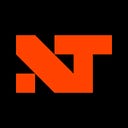Technical Analysis: Understanding Different Futures Trading Charts
Technical analysis is crucial for futures traders who want to make better, more informed trading decisions based on historical price and volume data. NinjaTrader offers three unique futures trading charts that allow you to visualize technical indicators and price data in more effective ways: activity-based bars, time-based bars, and price-based bars. Let’s explore how these different bar types are built and the potential benefits for traders.
Advantages of Using Alternative Chart Types
In a recent episode of NinjaTrader Live, our futures expert Jim Cagnina discussed alternative chart types available to traders including tick, volume, range, Renko, Kagi, and others. Jim showed us how to apply and format activity-based and price-based bar types, the advantages and benefits of using non-time-based futures trading charts, and how they can be integrated with your current indicators to help you make more informed trading decisions.
Topics discussed in this free livestream:
- What are activity-based chart types?
- What are price-based chart types?
- How to apply and format activity-based and price-based chart types
Time-based Futures Trading Charts
By far the most widely used bar-building method is time-based futures trading charts, which provide a clear, consistent visual representation of price action using a specific time interval. Each bar on the chart represents a fixed time interval — such as one minute, five minutes, 15 minutes, one hour, one day — depending on the trader’s preference and trading style.
Regardless of how bars are built, they generally display the open, high, low, and closing prices for each bar, allowing traders to identify trends, patterns, and key support and resistance levels using the universe of technical analysis tools available.
Activity-Based Bars
There are two types of activity-based bars: volume bars and tick bars. These bars are created based on a predefined number of ticks or volume set by the trader. For example, a volume bar can be formed after every 1,000 contracts are traded, while a tick bar might be formed after every 500 ticks (trades), where one trade equals one tick. The number of ticks or the amount of volume is a parameter set by the trader and can be adjusted to different activity levels as required.
Benefits of activity-based futures trading charts
- Reduced noise: By focusing on volume or trades, activity-based bars help filter out the market noise prevalent in low-volume periods, creating fewer bars and helping traders avoid the churning of price movement over a key price level.
- More responsive indicators: Tick and volume bars can help indicators adapt more quickly during periods of high volatility, building more bars during high trading activity and allowing traders to respond more quickly to sudden price changes and momentum.
Since each bar forms based on price or trading activity and not time, the bar time stamps will be irregular, with a different number of minutes between each bar.
Price-Based Bars
Price-based bars are formed based on a specified bar-building technique using a specific price movement increment. For instance, a range bar can be formed every time the range of a bar reaches five points, regardless of how much time is required to build the bar.
There are several price-based bar-building methods available within the NinjaTrader Desktop platform for you to explore and experiment with. (Figure 1)
Figure-1: The data series properties dialog allows you to set the bar type.
Benefits of price-based bar types
- Focus on price action: Similar to activity-based charts, by emphasizing significant price movements, price-based bars help focus the trader’s attention on price movement and changes in momentum while filtering out irrelevant market noise by reducing the number of bars in quiet market conditions.
- Better trend identification: When the market is trending, it’s easy to get faked out on a simple pullback. Price-based charts can often provide clearer visuals, providing improved signals and setup identification, making it easier to stay in the trend.
Make smarter futures trading decisions
Activity-based and price-based bars provide opportunities to visualize market price action in more effective ways and can make the indicators you use every day more responsive. Expanding your arsenal of chart-building tools will allow you to reduce chart noise, focus on significant price movements, gain better insights into market price activity, and make smarter, more informed trading decisions.
Unlock Free Exclusive Training
Explore the foundational concepts of technical analysis with our free multi-video trading course “Technical Analysis Made Easy.” Learn how to analyze and anticipate market movements using market prices, volume data, and more.
We’re Live Every Trading Day
Prep for the trading day ahead, analyze the markets in real time, and explore our award-winning platform during our daily livestream. Watch live here or catch what you missed on our YouTube channel.
Trade Futures with NinjaTrader
Haven’t signed up for your free NinjaTrader account yet? Get started today with a 14-day trial of live simulated futures trading.
This article was originally published on NinjaTrader.com: https://ninjatrader.com/futures/blogs/technical-analysis-understanding-different-futures-trading-charts/
